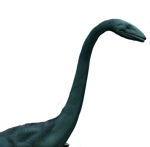Incredible. Spoilers in the following.
Greg Egan, as a writer, is not Neal Stephenson. His characters are a bit wooden, a bit less real, and not nearly as much fun. But after a few short stories and this book, I’m ready to call his ideas way, way bigger than Gibson’s or Stephenson’s. They are probably, in fact, a step ahead of Arthur C. Clarke. He’s thinking way bigger than any of the usual suspects. He’s asking questions that start in the real world and run right past the border to metaphysics, and you look back and wonder if there was ever a line at all.
Permutation City hits a lot of topics. The ethical and economic issues of uploads living forever, what it means to be conscious in an existence that can be simulated, what it means to live forever in a world without scarcity or limits, what it means to live forever in a world without scarcity but with limits.
The story has several characters, but the main story arc is that of a scientist attempting to create a simulated cellular automaton which will provably live forever based on it’s start state: dust theory. Dust theory is basically the idea that to a conscious being running as a simulation and not attempting to interact with ‘metaphysics’ defined by their simulation need not be computed sequentially. The subjective experience would be the same if it were computed one clock cycle per millennium. More importantly, if inputs and outputs are irrelevant, the state of a simulated conscious being will be accidentally reached all the time in the physical world by any number of methods. Thus, if your cellular automaton has a start state unreachable by it’s own rules, then it was seeded by a conscious being with a real (or at least meta) world. Put yourself into such a thing, and you live forever.
Maybe, maybe not, but the idea is not one that can be logically discounted out-of-hand.
If you don’t buy it, no matter: the book covers a lot of other good topics. Who is going to pay for your processor time now that you’re an upload? A trust fund, public goodwill, the product of your intellect? After a while, there will be a lot of competition for intellectual property. Most uploads will run much slower than real time. You live forever, but the world is flying by.
What’s it mean to be human if you can adjust your feelings at will? To be sentient? Do you still care about the real world? Why? If you don’t, and you live forever, won’t you eventually run out of computable states to exist in, and eventually enter an infinite loop? What if you adjust your personality that you enter a loop of states accidentally? Are you still sentient?
What if you were born into a world of limitless physics and no scarcity as an amnesiac clone or pseudo-random being: what would it mean to exist at all?
And the last one off the top of my head, from the dust theory FAQ: is it ethical to simulate biology beyond a certain level of abstraction, along with the necessary competition, pain, and death? Is it ethical to evolve an artificial intelligence? How would you know when the failed intelligences are actually fearing death?
It has been a long, long, long time since I read a book and felt stupider after I read it than before I picked it up. Done. I’m glad Arto has most of his books.







